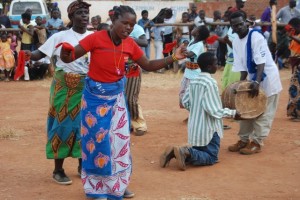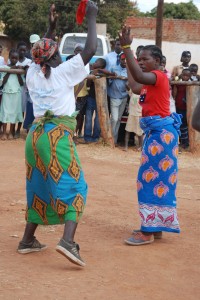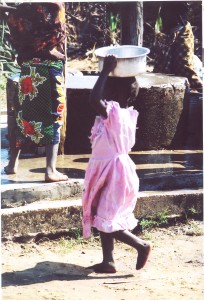By
Mwizenge S. Tembo, Ph. D.
Professor of Sociology
“Greetings Prof Tembo,
It is with the great joy writing to you to express my heartfelt joy using your book titled: Satisfying Zambian Hunger for Culture: Social Change in the Global World. Bloomington, IN: XLIBRIS, 2012. I would like to say thank you very much. I am still writing a book review on it. I had almost finished then my computer had viruses so I lost some data on it.
Baba aTembo, lomba mweo baba, how do you use the concepts of “Uncle, Aunt and Cousin?” Are you using the named terms with the urban context or rural or both? I am using your book now, and I am somehow disagreeing with the usage of these concepts. Kindly indicate the context? (Cf. 46 of your work). In my paper I write, as suggested by Mwizenge S. Tembo, in the Senga-Luzi culture, a child “has more than one mother, father, brother, sister, uncle, aunt, grandmother, grandfather, and of course cousins and in-laws.” I strongly disagree with Mwizenge S. Tembo on the concepts of uncle and cousins unless these concepts are used cautiously and among the selected few urban families. Even in urban setups, when one is called uncle, aunt and cousin, their relationship is quite distant.
Once more, thanks for this great masterpiece. It’s one of the dirtiest books I have ever read while in the Zambian diaspora.
Regards
Tembo Tembo Michael” (Not related to the author)
I was thrilled to read your e-mail as the author of the book. But your use of the word “dirtiest” in your last sentence first surprised me and then it made me smile. I tried to guess what word you had meant to type. When I failed to guess, I sent you another e-mail to ask you to explain. Then I received your e-mail in response.
“Oh no, sorry, I wanted to write, it’s the book I have dirtened with a highlighter. I have labelled so many pages in the book! I have really written in it very much and really enjoying it. I will do likewise when I am done with the book review.
This is my key textbook done by a Zambian scholar! It’s respectable work at my school. I have used it in my research works. Some Profs have been asking me if we are related. I answer them, the surname says it all.
I am in Texas, at Oblate School of Theology.
Once more, thanks for the great work and keep it up.”
I want to thank you very much for your kind words. I am very glad that you enjoy the book tremendously and you are finding it helpful in your academic papers at your School of Theology. Before I continue to respond to your questions, I am conscious that readers might assume that this is a publicity stunt for the book. I have not met you before and we are not related although we share the same last name which means our origins may be from the Eastern Province.
What you do when you read a book you very much like is exactly what I also do; mark them. All my books that I read and like I mark very heavily writing questions, both positive and critical comments on the edges of the page. So when you said you “dirtened” the book, that’s the sign that you are both enjoying and critically absorbing the ideas from the book.
The kinship relationships and terminology that I describe on page 46 of the book are common among my tribe; the Tumbuka and also the Ngoni in Eastern Province and may be going all the way to the Zulus in South Africa. I am sure similar kinship systems and terminologies exist among probably dozens of the 72 tribes of Zambia. Anthropologists have classified this as the Omaha kinship system which is among more than four major types found in societies all over the world. The only question is whether many tribes or ethnic groups follow this system in Zambian traditions. For example, among the Chewa of the Eastern province of Zambia and also of Malawi and Mozambique, the most important kinship has been that between a woman and her brother whom they call malume or uncle.
Most families in urban Zambia today might be so removed from knowledge of their ethnic or tribal kinship systems that the use of “uncle” is used to refer to close relatives but also friends of the family who are the father’s age. “Aunt” is used to refer to close relatives but also friends of the family that are the mother’s age. May be this is what you disagree with. I am sure that there are still some families in Zambia and abroad that still follow their traditional kinship relationships and terminology. I whole heartedly welcome the disagreements because that is part of intellectual discourse.
The book Satisfying Zambian Hunger for Culture can be used for so many different purposes; families can learn about Zambian culture, middle school, high school or secondary and college students can use it. Professors can use it as I do for teaching anthropology and Sociology. I recently gave a guest lecture in Professor Deborah Dunn’s class on “Nshima and Zambian foods” to her course on “International Foods and Nutrition” at our college. The book is so rich with our cultural history but also provides some vision and recommendations for the future. There is no comprehensive book that does this well right now. I am glad you are finding the book very useful.
As a last comment, this discussion reminds me of when I was a student at University of Zambia in the early 1970s. A Zambian student told his European lecturer or Professor that he was going to be absent from his class because he was going to a funeral because his mother had died. Six months later the same student told the same Professor that he would miss class again because he would be away to attend to a funeral of his mother who had just died. The European Professor thought the student was being less than honest until the Zambian student explained that in the Zambian and African traditional culture, he had more than one mother. I am proud that I have had three mothers; my mother’s only younger sister who passed away in 1984. I have two living mothers; my mother who lives at Chainda Farms in Lusaka. Today we would call her aunt. Then I have my biological mother who is still living in the village. I call both women amama. They both know it and they are happy.


